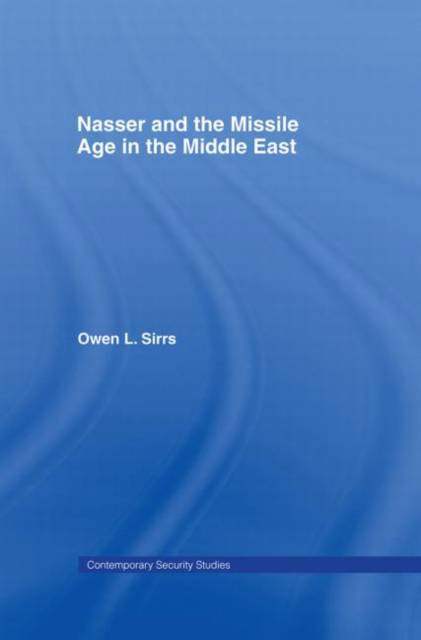
- Afhalen na 1 uur in een winkel met voorraad
- Gratis thuislevering in België vanaf € 30
- Ruim aanbod met 7 miljoen producten
- Afhalen na 1 uur in een winkel met voorraad
- Gratis thuislevering in België vanaf € 30
- Ruim aanbod met 7 miljoen producten
Omschrijving
Egyptian efforts to acquire long-range surface-to-surface missiles in the early 1960s carry important lessons for our time, when weapons of mass destruction and charges of politicizing intelligence are key issues.
This new study traces the history of the early Egyptian ballistic missile program, which began with the successful recruitment of German scientists who had experience in Hitler's V1 and V2 missile projects. Yet even as these Germans began their work on developing missiles for Egyptian President Gamal Abdel Nasser, Israeli intelligence was busy collecting information on their activities, sparking a crisis in the Israeli leadership as top Israeli officials anxiously debated strategies to grapple with this new threat to their national security. Ultimately, they adopted a multifaceted approach that included intimidation of the scientists and their families, appeals to the West German government to order the scientists' recall and an attempt to involve the US government in the intricacies of the Arab-Israeli conflict.
Drawing extensively on material from recently declassified US government documents, this new major work demonstrates how Nasser's missile program played an instrumental role in cementing the US-Israeli national security relationship. The book concludes with several key lessons that can help stem the global proliferation of advanced weapons.
This book will be of great interest to scholars of proliferation, international relations, the Middle East, disarmament and security studies in general.
Specificaties
Betrokkenen
- Auteur(s):
- Uitgeverij:
Inhoud
- Aantal bladzijden:
- 272
- Taal:
- Engels
- Reeks:
Eigenschappen
- Productcode (EAN):
- 9780415370035
- Verschijningsdatum:
- 19/12/2005
- Uitvoering:
- Hardcover
- Formaat:
- Genaaid
- Afmetingen:
- 156 mm x 234 mm
- Gewicht:
- 557 g

Alleen bij Standaard Boekhandel
Beoordelingen
We publiceren alleen reviews die voldoen aan de voorwaarden voor reviews. Bekijk onze voorwaarden voor reviews.











